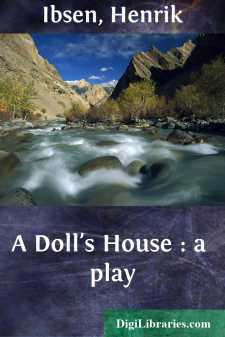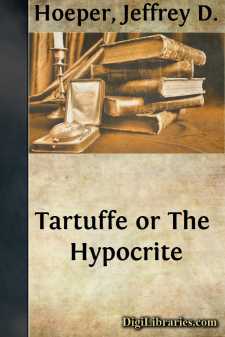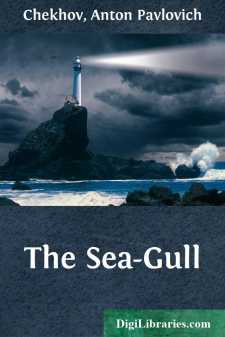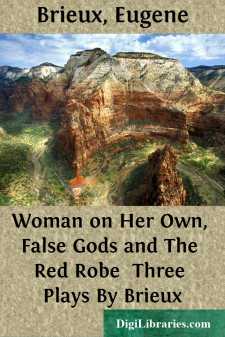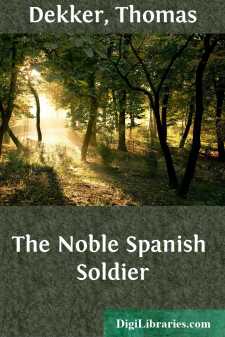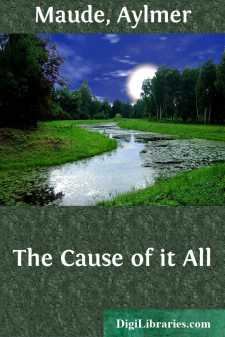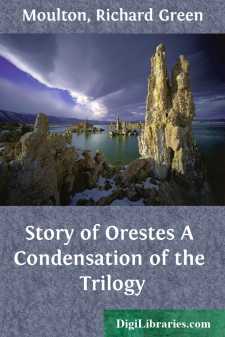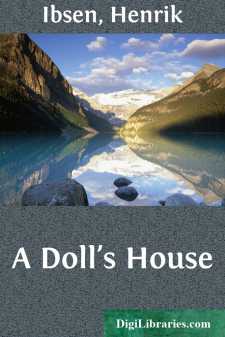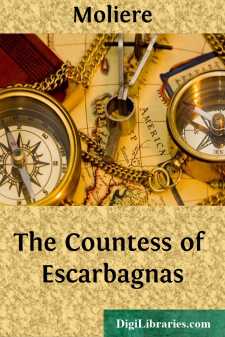Drama
- American 43
- Ancient, Classical & Medieval 45
- Asian 7
- Caribbean & Latin American 2
- Continental European
- English, Irish, Scottish, Welsh 91
- General 105
- Middle Eastern 1
- Religious & Liturgical 1
- Shakespeare 1
Continental European Books
Sort by:
by:
Henrik Ibsen
ACT I [SCENE.--A room furnished comfortably and tastefully, but not extravagantly. At the back, a door to the right leads to the entrance-hall, another to the left leads to Helmer's study. Between the doors stands a piano. In the middle of the left-hand wall is a door, and beyond it a window. Near the window are a round table, arm-chairs and a small sofa. In the right-hand wall, at the farther...
more...
ACT ISCENE I Madame Pernelle and her servant Flipote, Elmire, Mariane, Dorine, Damis, Cleante Mme. Pernelle. Let's go, Flipote, let's go. I hate this place. Elmire. I can't keep up, you rush at such a pace. Mme. Pernelle. Peace, my dear, peace; come no farther.I don't wish to cause you any bother. Elmire. What duty demands, I insist on giving.But, mother, what has caused...
more...
ACT I The scene is laid in the park on SORIN'S estate. A broad avenue of trees leads away from the audience toward a lake which lies lost in the depths of the park. The avenue is obstructed by a rough stage, temporarily erected for the performance of amateur theatricals, and which screens the lake from view. There is a dense growth of bushes to the left and right of the stage. A few chairs and a...
more...
by:
Eugene Brieux
PREFACE We are confronted at the present time by the woman who is anxious to lay by means for her own support irrespective of the protection of her husband. In this play I have indicated the tendency of this difficulty and the consequent troubles which the older civilizations will bring upon themselves when the woman's standing as a worker is generally acknowledged. My conclusion, namely, that all...
more...
by:
Thomas Dekker
INTRODUCTION THOMAS DEKKER Thomas Dekker is believed to have been born in London around 1572, but nothing is known for certain about his youth. He embarked on a career as a theatre writer early in his adult life, the first extant text of his work being 'Old Fortunatus' written around 1596, although there are plays connected with his name which were performed as early as 1594. The period from...
more...
ACT I A country house on a terrace. In front of it a garden. In an avenue of trees, under an old poplar, stands a table set for tea, with a samovar, etc. Some benches and chairs stand near the table. On one of them is lying a guitar. A hammock is swung near the table. It is three o'clock in the afternoon of a cloudy day. MARINA, a quiet, grey-haired, little old woman, is sitting at the table...
more...
by:
Aylmer Maude
ACT I Autumn. A peasant's hut, with a small room partitioned off. AkulÃna sits spinning; Martha the housewife is kneading bread; little Paráshka is rocking a cradle. MARTHA. Oh dear, my heart feels heavy! I know it means trouble; there's nothing to keep him there. It will again be like the other day, when he went to town to sell the firewood and drank nearly half of it. And he blames me...
more...
MEMORANDUM The Sacred Legends touched by this Trilogy would be familiar, in outline, to the Auditors: e. g.: The woes of the House of Atreus: the foundation of them laid by Atreus when, to take vengeance on his brother Thyestes, he served up to him at a banquet the flesh of his own sons; His grandsons were Agamemnon and Menelaus: Menelaus' wife, Helen, was stolen by a guest, Paris of Troy, which...
more...
by:
Henrik Ibsen
A DOLL'S HOUSE ACT I (SCENE.—A room furnished comfortably and tastefully, but not extravagantly. At the back, a door to the right leads to the entrance-hall, another to the left leads to Helmer's study. Between the doors stands a piano. In the middle of the left-hand wall is a door, and beyond it a window. Near the window are a round table, armchairs and a small sofa. In the right-hand...
more...
by:
Moliere
SCENE I.—JULIA, THE VISCOUNT. Visc. What! you are here already? Ju. Yes, and you ought to be ashamed of yourself, Cléante; it is not right for a lover to be the last to come to the rendezvous. Visc. I should have been here long ago if there were no importunate people in the world. I was stopped on my way by an old bore of rank, who asked me news of the court, merely to be able himself to detail to...
more...


